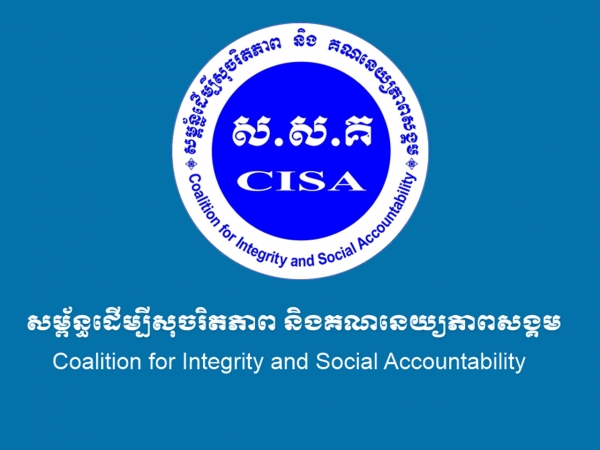Firstly, the group produced a Strategic Framework (SAF) which outlines opportunities for improvement. In response to the SAF the Implementation of the Strategic Framework (I-SAF) was created in 2013 to outline the approach and how facilitate these changes. Now a second three-year implementation plan has been created known as IP3-II, which places a strong emphasis on the participation of civil society, with CSOs and national NGOs being the main implementers of the Social Accountability Framework. By focusing on local NGOs, the goal is that citizens of communities will be more aware and hold local governments accountable.
During July and early August of 2016, CISA collaborated with local authorities to meet with members of the Tropang Chres and Toen Communities of the Koun Mom District. This collaboration was organized in order to identify, interview and select candidates to be the Community Accountability Facilitators (CAFs). Once selected the eight CAFs received intensive training on I-SAF and its four modules. (For more information on SAF and its modules please click here to read the document provided by the NCDD). During the months of August and September, four training sessions were held with each one focusing on a specific module from I-SAF and the approach on how to address the issues. All eight CAFs were present at all four trainings. A test was to be completed by each CAF before and after the trainings to assess their knowledge of the content and each time all eight CAF’s improved their scores.
The training for the first module was held on August 12-15th which provided information on social accountability, local governance, service delivery and citizen and government relationships. The training was an opportunity for the CAF’s to use and apply the lessons they learned in their communities. On the 27th-30th of August 2016, the second module was hosted in Kon Mon. The training focused on providing access to information and having an open budget (14Cs) for all businesses: Commune Councils, Health Centres, Primary Schools, etc. The third and fourth trainings were held back to back in September. From September 8th to 11th, the selected CAFs learned about Module III: Citizens Monitoring. This module explained that the approach to increasing citizens monitoring is through a community scorecard. The fourth and final module training was on September 12th to 15th and focused on supporting action for change with the training outlining the best practices for running a meeting.
Once all the trainings were complete and the CAFs improved their knowledge of I-SAF, a community meeting was held to discuss the 14Cs. Both CISA and CAF were in attendance at the meetings, along with Toen and Tropang Chres, to share information with the citizens of the communities. The meetings were successful as the citizens voiced their complaints about the service of the health center, primary school and administration. The citizens learned that it is important to attend and participate in the scorecard meetings as this is the forum for them to address those complaints and work together to resolve the issues and raise them to the service provider in JAAP. The CAFs attributed their good attendance at the meetings to their decision to send a letter to the chiefs requesting their cooperation. These requests for their chiefs’ to attend proved very effective.
Despite the successes, CISA faces a couple of identified challenges with this project. Communication can be difficult with all the different languages that are spoken which is why CISA was careful to select CAFs that speak English well and can translate to their local language. Unfortunately, the governors are not always familiar with the I-SAF project or do not understand the framework making it difficult to gain their full cooperation and involvement. CISA has and will continue to work closely with these governors to provide additional documentation until they understand the objective and the importance of the project. Unfortunately, another issue is that this project is currently only scheduled as a six-month project and is consequently coming to a close. There are many more areas to reach out to so CISA has requested that the project be extended for an additional two years. The first four months of the project have been successful but more time would allow CISA the opportunity to reach more communities. Lastly, the budget for this project is inconsistent and is not always able to support the activities planned.
Throughout this project CISA has learnt a number of things; projects should be launched with full participation from the stakeholders involved, communication tools must be established to allow for better more effective communication between government and implementation partners and that the budget and planned activities must be consistent with each other.



